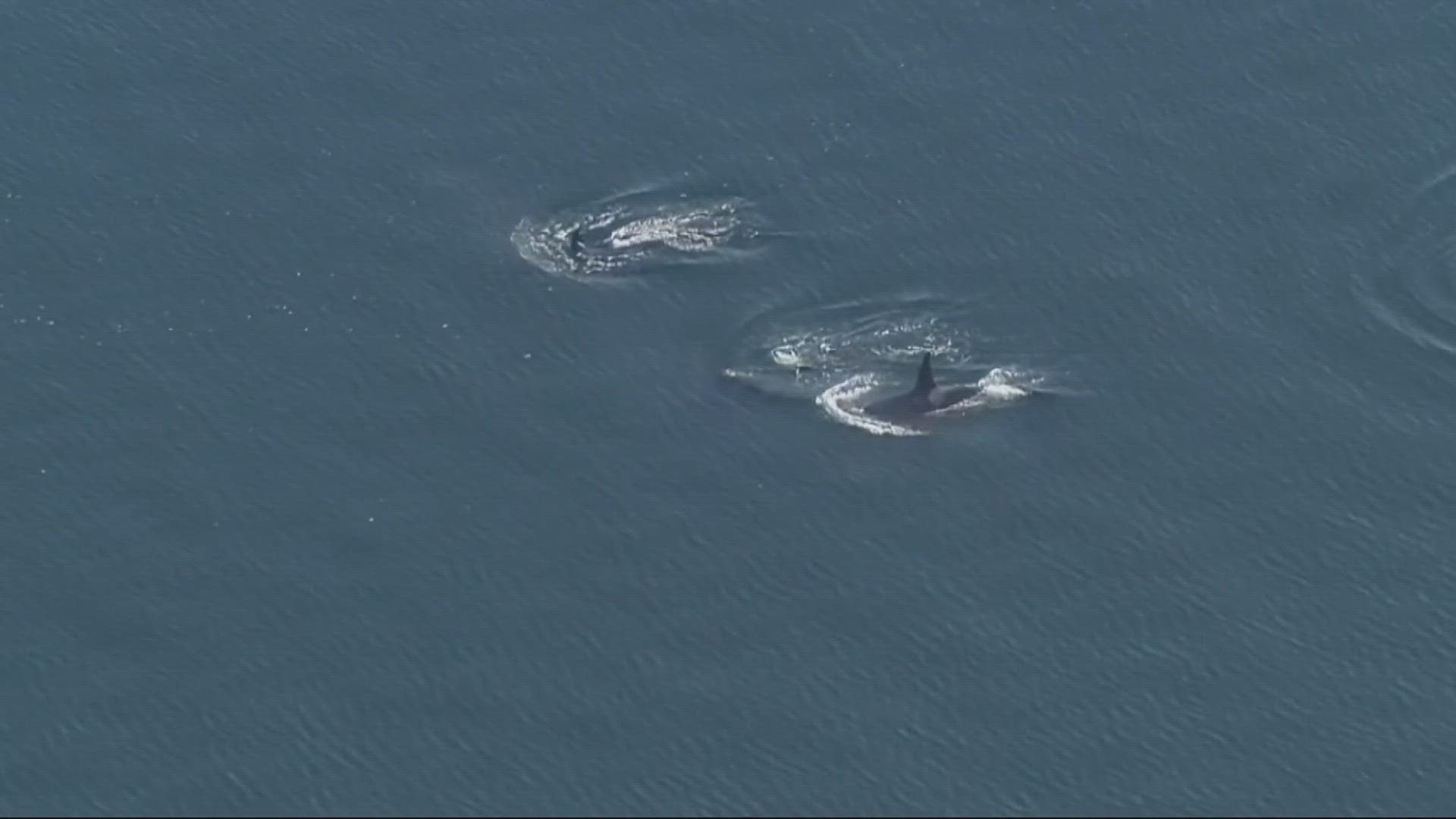PORTLAND, Ore. — Southern resident orcas are now considered an endangered species in Oregon, thanks to a vote by the state's Fish and Wildlife Commission on Friday.
These orcas have long faced extinction and were added to the federal endangered species list in 2005 and also classified as endangered in both Canada and Washington state.
"This all started with a petition to list the species from three environmental organizations," explained Tara Brock, Pacific counsel for Oceana, an ocean conservation organization. "This has been under consideration for about a year now, and today was the final action by the commission to adopt that listing under state law."
The three protection groups that lobbied for the species' protection were the Center for Biological Diversity, Defenders of Wildlife, and Whale and Dolphin Conservation. Their petition had been filed last year.
Oregon's Fish and Wildlife Commission added orcas to the endangered species list because their population continues to decline.
"When they were originally listed, there were 88 individuals," Brock said. "Most recently, as of July, there was estimated to be 75 individuals — and there’s so few that we really know every single one."
Brock admits that number could now be 74. A southern resident orca calf from a pod in Washington hasn't been seen in weeks, and researchers believe the calf may have died.
Southern resident orcas are facing three primary threats, including noise from ships and environmental contaminates. But the most influential is lack of prey.
"Not having their primary diet, which is Chinook salmon, has been the main cause of their decline," Brock said.
Many southern resident female orcas are nearing the age where they will no longer be able to reproduce, according to Oceana. This also endangers the calves — only 60% survive the first few years, and their lives are further shortened when they're unable to get enough nutrition.
In the past, these orcas also faced the threat of capture and captivity. One of the most famous southern residents was Tokitae, who spent over 50 years in a tank in Florida. Tokitae was captured in Puget Sound in the 1970s and died before she could be released back into her native waters.
Now that southern resident orcas are considered endangered in Oregon, the state has access to more funding to support orca recovery.
"[We're] looking forward to the development of those species management plans and making sure we get really strong plans in place to help recover this really special and unique population off our coast," Brock said.
These measures include increasing salmon abundance, new measures to prevent oil spills, limits on pollutants in state waters and guidelines on vessel traffic, according to Oceana.
The southern resident orcas spend a lot of time feeding in Oregon's and California's inland and coastal waters, and live in the Puget Sound and Washington state's coastal waters.

